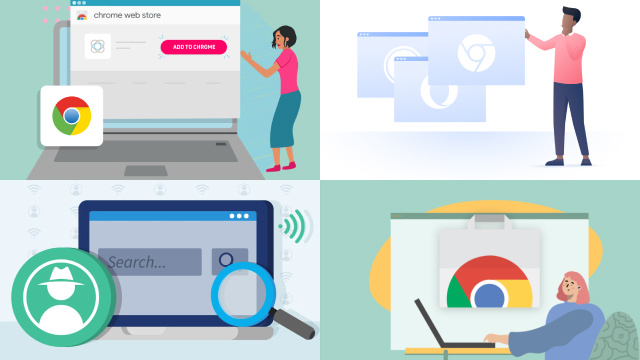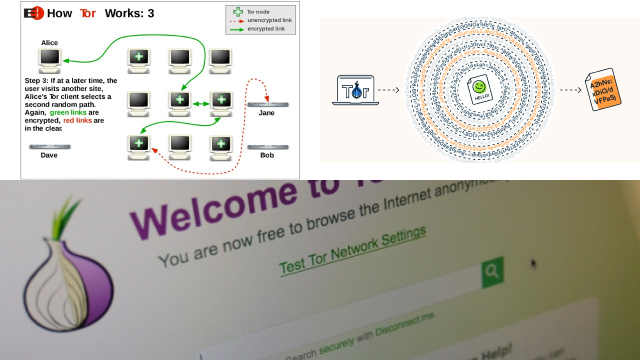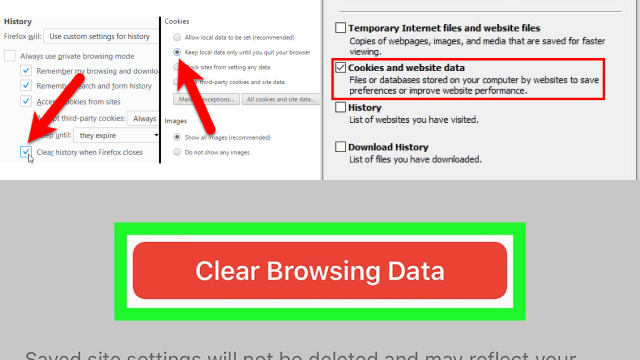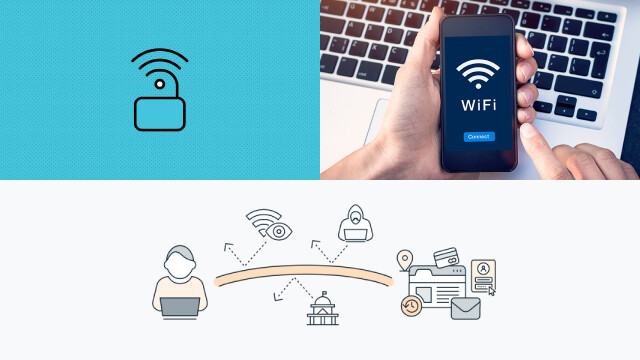Why browsing the internet anonymously is important
Browsing the internet anonymously is important for several reasons. First, it protects your privacy by preventing websites from tracking your online activity. Websites use cookies to track your browsing history, which can be used to create a profile of your interests and behavior. This information can then be used for targeted advertising, or sold to third-party companies.
Second, anonymous browsing helps to protect your personal information from hackers and cybercriminals. When you browse the internet without any protection, your IP address is visible, which can be used to track your location and gain access to your personal data.

Finally, anonymous browsing can help to bypass internet censorship and access content that may be restricted in certain countries or regions.
Overall, browsing the internet anonymously is an essential step in protecting your online privacy and security. By using tools such as VPNs, Tor browsers, and privacy-focused search engines, you can ensure that your online activity is not being monitored or tracked. It’s important to take control of your online privacy and protect your personal information from prying eyes.
Using a Virtual Private Network (VPN) to browse anonymously
sing a Virtual Private Network (VPN) is one of the most effective ways to browse the internet anonymously. A VPN encrypts your internet traffic and routes it through a remote server, masking your IP address and making it difficult for anyone to track your online activity.
When you connect to a VPN, all of your internet traffic is encrypted and routed through the VPN server. This means that your ISP, government agencies, or hackers cannot intercept your online activity or see what websites you are visiting.
Additionally, VPNs can help bypass geo-restrictions and access content that may be blocked in certain countries or regions. By connecting to a server in a different country, you can access websites and services that may be otherwise unavailable in your location.
It’s important to choose a reputable VPN provider that prioritizes user privacy and security. Look for a VPN with a no-logs policy, strong encryption, and a large server network to ensure that your online activity is protected. By using a VPN, you can browse the internet anonymously and enjoy greater privacy and security online.
Tor Browser for anonymous browsing
The Tor Browser is another tool that can be used for anonymous browsing. It is a free and open-source web browser that allows users to browse the internet anonymously by routing their internet traffic through a network of volunteer-run servers. The Tor network encrypts your internet traffic and bounces it through several different servers, making it very difficult for anyone to trace your online activity back to your IP address.
One of the advantages of the Tor Browser is that it is easy to use and requires no special configuration. Simply download the Tor Browser and start browsing the internet anonymously. However, it’s important to note that using the Tor Browser can sometimes result in slower internet speeds due to the encryption and routing of internet traffic through multiple servers.

Additionally, the Tor Browser is often used for accessing the dark web, which is a part of the internet that is not indexed by traditional search engines and can only be accessed with specific software or configurations. It’s important to use the Tor Browser responsibly and avoid engaging in illegal activities on the dark web.
Using a privacy-focused search engine
Using a privacy-focused search engine is another way to browse the internet anonymously. Traditional search engines such as Google, Bing, and Yahoo collect user data and track their online activity in order to deliver personalized search results and targeted advertising. However, privacy-focused search engines do not collect any user data and do not track their online activity.
Privacy-focused search engines use various methods to ensure user privacy, such as encryption, anonymous search queries, and not logging any user data. These search engines can help protect your online privacy by preventing search engines from tracking your searches and building a profile of your interests and habits.
One of the disadvantages of privacy-focused search engines is that their search results may not be as comprehensive as those of traditional search engines, as they do not use user data to tailor their results. However, for users who prioritize their online privacy, the trade-off is worth it.
There are several privacy-focused search engines available, and it’s important to choose one that fits your needs and preferences. Some popular options include DuckDuckGo, StartPage, and Searx.
Disabling cookies and clearing your browsing history are simple but effective ways to enhance your online privacy and browse the internet anonymously.
Cookies are small text files that websites store on your computer in order to track your online activity and preferences. By disabling cookies, you can prevent websites from tracking your activity and collecting data about you. Most web browsers offer the option to disable cookies, and this can usually be found in the privacy or security settings of the browser.
Clearing your browsing history is another way to protect your online privacy. Browsers keep a record of your browsing history, including websites visited, search queries, and downloads. By regularly clearing your browsing history, you can prevent others from accessing your browsing history and potentially compromising your privacy. This can usually be done through the settings or options menu of your web browser.

It’s important to note that disabling cookies and clearing your browsing history may impact the functionality of certain websites or cause you to re-enter login credentials for certain sites. However, the trade-off of enhanced privacy and anonymity is worth it for many users.
Staying safe on public Wi-Fi networks
Public Wi-Fi networks are convenient for browsing the internet on-the-go, but they also pose significant risks to your online privacy and security. When you connect to a public Wi-Fi network, you are essentially sharing the same network with everyone else on that network, including potential hackers and cybercriminals.
To stay safe on public Wi-Fi networks, there are a few precautions you can take. Firstly, avoid connecting to any networks that are not password protected or do not require a login. These open networks are the most vulnerable to cyber attacks.
Secondly, use a secure connection whenever possible, such as HTTPS or SSL. This can be indicated by a padlock icon in the browser’s address bar. These secure connections encrypt your data and make it more difficult for hackers to intercept or access your information.
Lastly, consider using a virtual private network (VPN) to connect to public Wi-Fi networks. A VPN encrypts your internet traffic and hides your IP address, making it difficult for hackers to track your online activity or intercept your data.
By following these precautions, you can help protect your online privacy and stay safe while using public Wi-Fi networks.
Conclusion: Protecting your privacy online
Protecting your privacy online is more important than ever in today’s digital age. With the increasing amount of personal information being shared online, it’s essential to take steps to safeguard your data and protect your identity.
Fortunately, there are many tools and strategies available to help you browse the internet anonymously and protect your online privacy. These include using a virtual private network (VPN) or the Tor browser to encrypt your internet traffic and hide your IP address, using privacy-focused search engines, disabling cookies and clearing browsing history, and staying safe on public Wi-Fi networks.

While no single tool or strategy can provide 100% protection, taking a layered approach to online privacy can greatly enhance your security and help keep your personal information safe. By staying vigilant and informed about the latest threats and vulnerabilities, you can take control of your online privacy and browse the internet with confidence.
In the end, protecting your online privacy is not just about safeguarding your personal information; it’s also about preserving your fundamental right to privacy and maintaining a free and open internet for everyone.